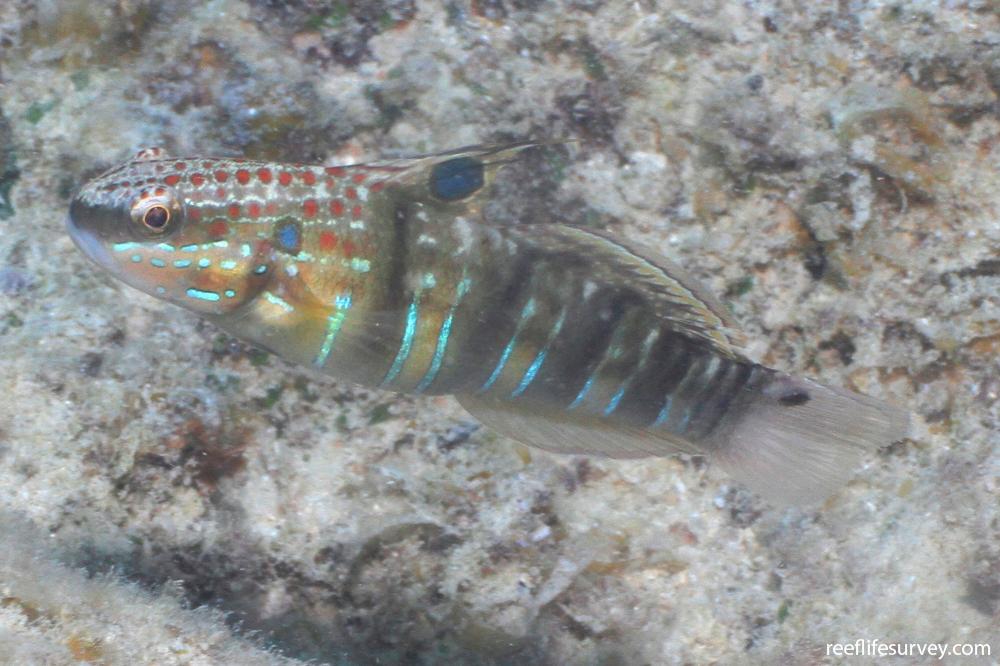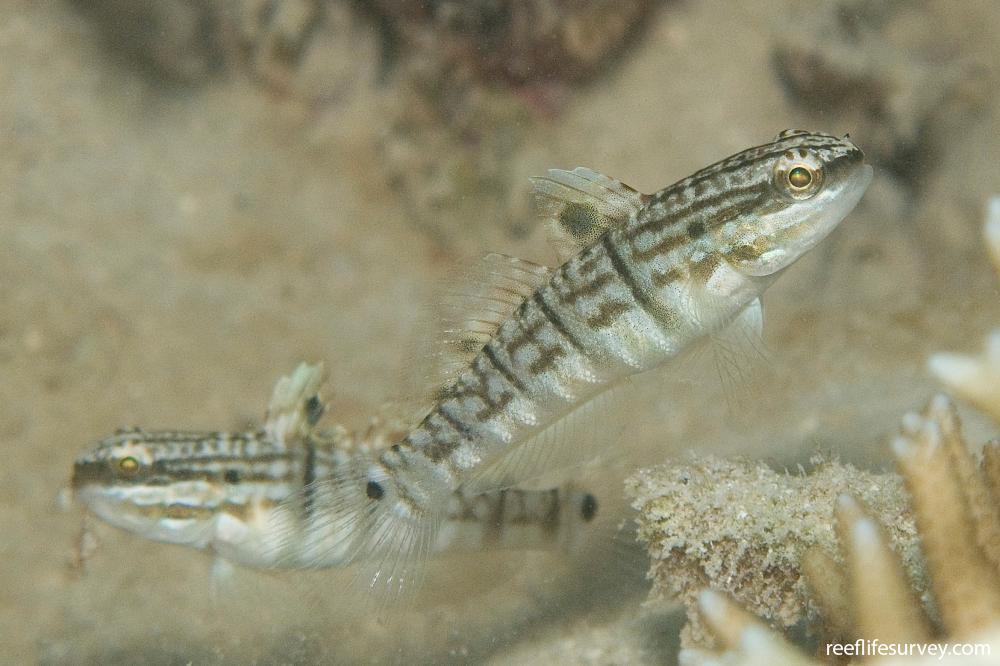Amblygobius phalaena
Dusky barred goby | Banded Goby | Barred Goby | Brown-barred Goby | White-bar Goby | Whitebarred GobySimilar Species
Same Genus
Distribution
Temperate Australasia, Temperate northern Pacific, Tropical Indo-Pacific
Description
Common and widespread, variable colour and markings. Series of dark broken stripes and bars, with ocelli on 1st dorsal fin, above pectoral fin and on transparent portion of tail. Adults with erect fins and separated 1st dorsal fin appear to have a narrow 'waist'. Males with higher bodies and more colourful markings. One of few gobies able to maintain neutral buoyancy without swimming. Similar A. sphynx (Sphynx Goby) lacks ocellus on 1st dorsal fin. Hovers close to the bottom over sand and rubble patches near reefs. Darts into nearby holes when approached.
Information
Max Size: 15 cm
Sea Temperature Range: 19.1-31.3°C
Depth: 2-52m
Habitat Generalization Index: 16.04
Also referred to as the SGI (Species Generalisation Index), this describes the habitat niche breadth of the species. Species with values less than 15 are found in a relatively narrow range of reef habitat types (specialists), while those over 25 may be found on most hard substrates within their range (generalists). Learn more here.
Conservation and Rarity
IUCN Status: Not Evaluated
Occurrence: Frequent (19.6% of sites)
Occurrence describes how often the species is found on surveys within its distribution. It is calculated as the % of reef sites surveyed by RLS divers across all the ecoregions in which the species has been observed
Abundance: Several (7 per transect)
Abundance is calculated as the average number of individuals recorded per RLS transect, where present.
Edit by: Joe Shields

















